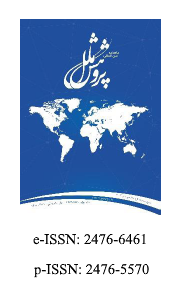مقالات پربازدید
- چگونگی تغییرات فعل هنگام تأکید در زبان عربی
- تحلیل محتوای کتابهای درسی مطالعات اجتماعی پایه پنجم و ششم دوره ابتدایی بر اساس مؤلفههای فرهنگ کار
- حضور داعش در افغانستان؛ تهدیدی بر امنیت ملی ج. ا. ایران (با تاکید بر ژئوپلتیک انتقادی و نسل نوین تروریزم 2019-2017)
- علل و عوامل طلاق در جامعه و جنبه های مختلف آن
- افراطگرایی خشونتآمیز تحت تأثیر مبانی فکری بنیادگرایی (2): مروری بر مدلهای مفهومی و تحقیقات کاربردی*
شماره جاری: دوره نهم، شماره 95، دی ماه 1402
آیتمی جهت نمایش وجود ندارد




